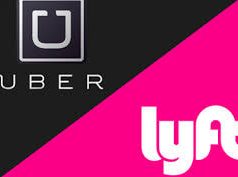
If you are close to your 65th birthday, or are already on Medicare, the Medicare pitches are flooding your email, voicemail, text and old-fashioned mailbox. As you are probably well aware, it’s the open enrollment period until Dec. 7. If you have questions, you aren’t alone.
Senior Planet found two independent Medicare experts and searched Medicare info to find out what’s new, what’s worth knowing and where to get more help.
First Stop, Medicare.gov
If you’re not yet enrolled, check out Medicare’s 5 important facts.
- Some people get Medicare automatically, but not everyone. You may need to sign up if you are close to 65 but not yet taking Social Security.
- Pay attention to the deadline for signing up (explained once you start the process).
- Know when to sign up for part B.
- Know you have choices.
- Know you may be eligible for help with the costs.
Experts Weigh In
“People don’t realize Medicare doesn’t pay for everything,” says Diane Daniels, a Florida-based Medicare advisor and author of The Medicare Survival Guide. “It has deductibles and copays.” She advises people to prepare for those costs.
Once on Medicare, some stay on their existing plan for years, what Daniels calls the “If it ain’t broke, don’t fix it” mentality. Not good, she says. Compare plans every year. Tailor your plan to your medical history and needs.
One quick way to get updated is to look at the annual notice of changes sent during open enrollment.
Those who have retiree benefit plans shouldn’t assume that is superior to a Medicare plan, says Jae Oh, MBA, a financial planner in Ann Arbor, MI., and author of Maximize Your Medicare. Not always true, he says.
Plan ahead. Oh advises people near Medicare age to begin researching plans two years before the first person in the household will be eligible.
Changes Worth Noting
Two changes for 2020-2021 Medicare plans worth noting, the experts say, are:
- Lower out-of-pocket costs for insulin. If you join a Medicare drug plan that participates in the “Part D Senior Savings Model,” the plan offers multiple types of insulin at a maximum copayment of $35 for a 30-day supply, a substantial savings. Check details carefully, Oh says. “There are many different types of insulin and not all are handled the same across plans.”
- If you have end stage renal disease (ESRD), you are allowed unrestricted access to Medicare Advantage plans.
More Help, Please
Go to the Medicare website to shop and compare. Get help, including counseling and assistance, through State Health Insurance Assistance Programs; find your state info here. Or go to an independent Medicare consultant who can help you compare plans.









